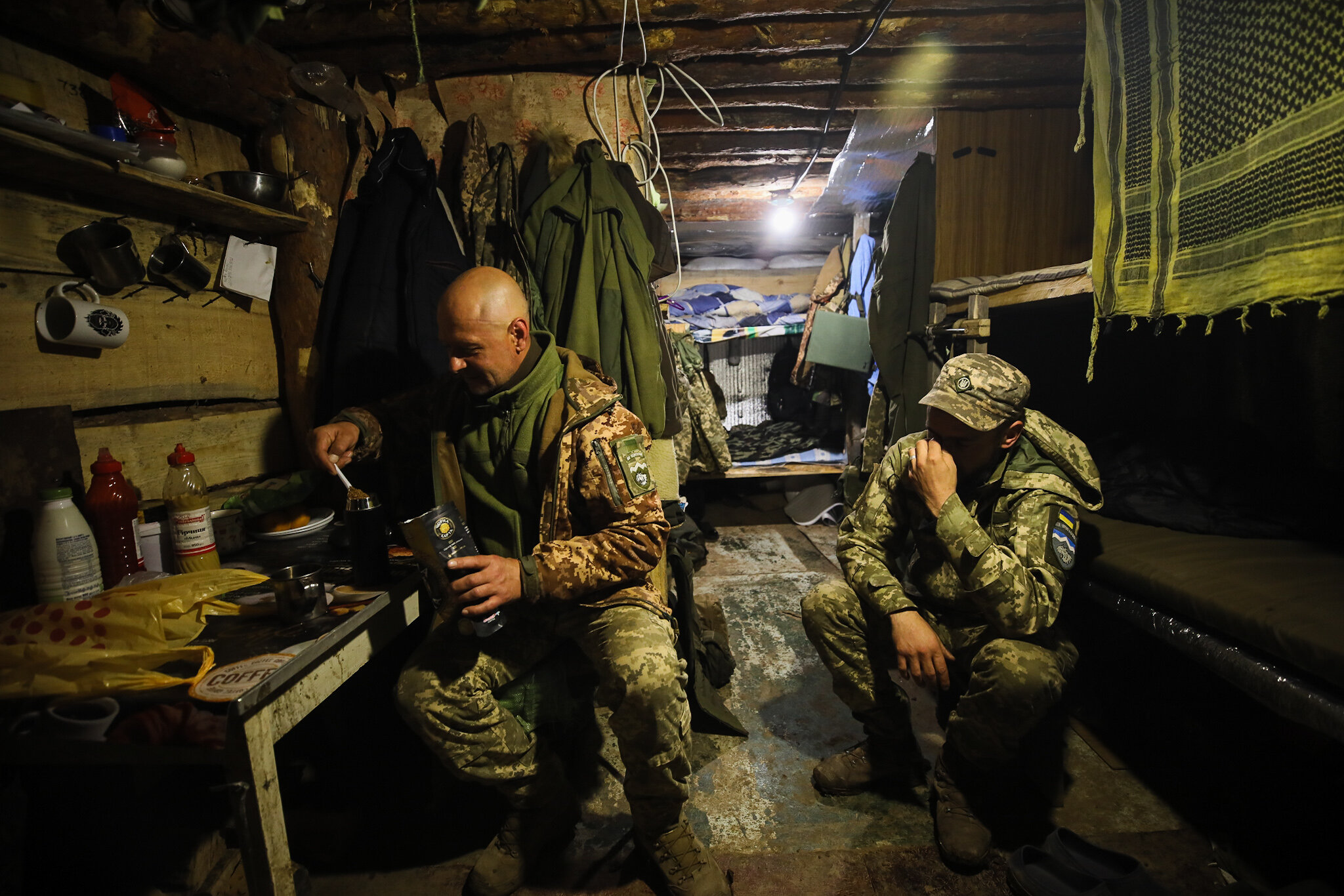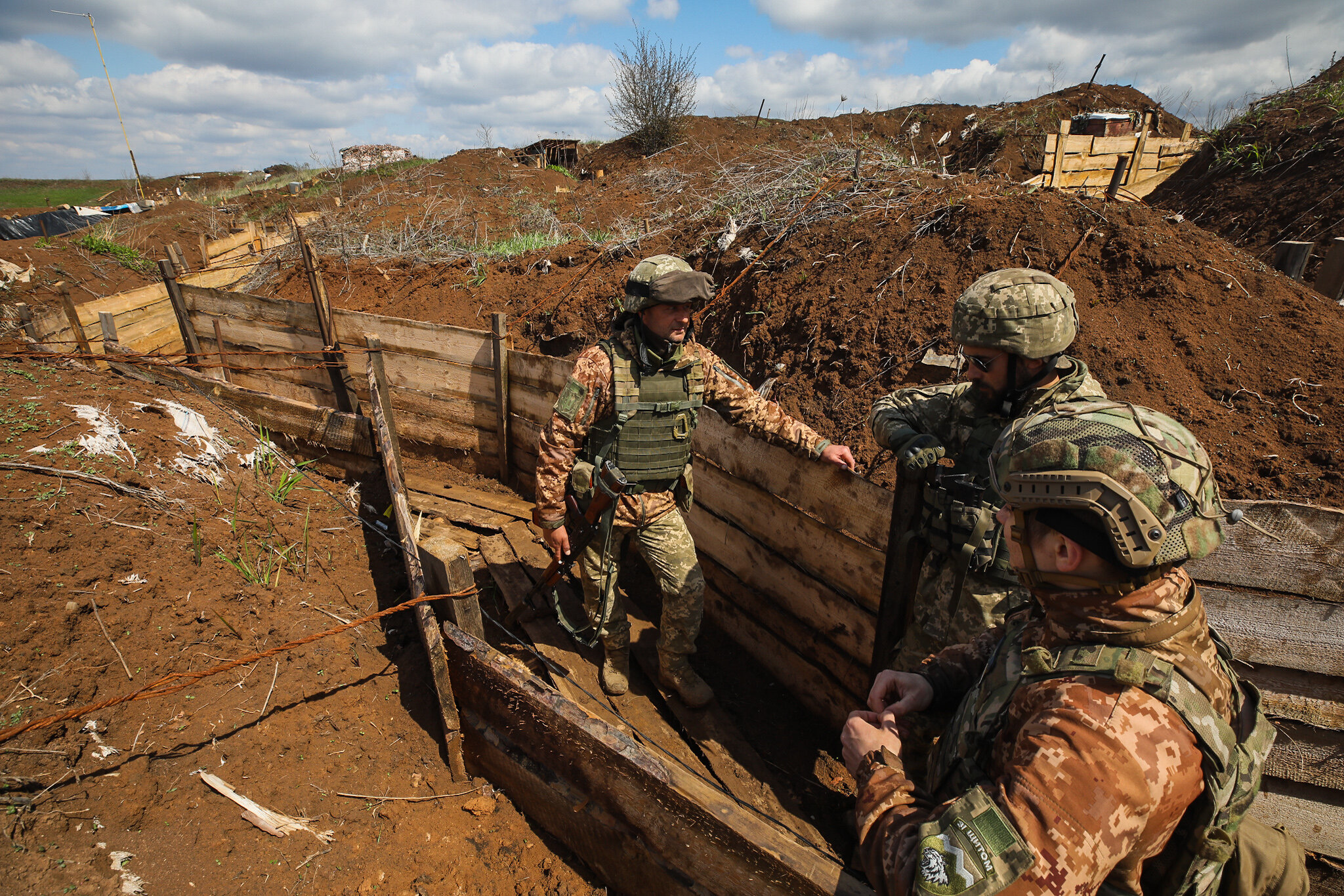Vasyl Rakul, a Defense Ministry official, allegedly demanded $1 million from a construction developer in Odesa, the Black Sea port city located 450 kilometers south of Kyiv.
At stake was whether the company, Mazal Invest, would get a juicy government contract to build housing for military personnel in the city of 1 million people. At his fingertips, the official allegedly prepared papers to rig the contest and decide the winner.
It didn’t work that way. On July 27, the police arrested him.
Yet another high-profile scandal is once again a symptom of a far greater evil: the endemic, sweeping corruption in housing contracting at Ukraine’s Defense Ministry, which now commands a partly secret budget of more than $5 billion yearly.
All across the country, tens of thousands of soldiers and officers spend decades waiting for apartments as promised rewards for service to the nation.
Most of them will retire without getting one, despite pledges and considerable budget financing. The money gets lost to corruption — embezzlement and fixed tenders — aided by a lack of transparency and scores of legislative loopholes.
Stuck for years
The fact that military housing in Ukraine is in catastrophic condition is hardly new.
Time and again, the law exposes cases when military boot camps end up getting nothing but brick walls instead of fully equipped barracks or other facilities.
In terms of residential housing alone, according to various estimates, between 44,900 and 47,000 military families are still waiting for accommodation from the government.
According to Defense Ministry, in 2020, only 193 apartments were provided. At such a pace, the end of the housing line won’t come until 2260.
Poor housing is among the top reasons why many service members leave the armed forces for civilian life. For many military families, renting apartments is costly, while barracks are often horrific or not even available.
Meanwhile, according to Ukraine’s Accounting Chamber, in 2016 and 2017 alone, the state budget allocated nearly Hr 1.2 billion ($44.5 million). Nearly Hr 600 million ($22 million) were spent ineffectually and more Hr 32 million ($1.19 million) were probably embezzled.
Behind the mess are rigged building contracts, inflated prices, uninhabitable quarters, or even “new accommodations” that exist only on paper.
Yet, over the years, no senior officials have been jailed despite multiple criminal cases initiated.

Ukrainian soldiers brew coffee in a front line dugout near the Donbas war zone town of Zhovanka on April 28, 2021. (Volodymyr Petrov)
Known characters
The busted official, Rakul, served as the head of the Defense Ministry’s Department for Major Construction in Odesa.
He was in charge of military housing in the country’s southern regions, with large powers to decide on building contracts. Long before the arrest, he had a highly controversial reputation, with a long and murky trail of criminal cases and corruption scandals.
According to Oleh Mykhailik, an anti-corruption activist in Odesa, Rakul used to be in charge of the city government’s consumer market and consumer rights department but was fired after a scandal in 2014.
Specifically, he concluded a contract with security firm Nimfa, which was accused of racketeering and physically assaulting businesspeople.
Besides, in 2019, under his lead, the Odesa Construction Factory, a Defense Ministry asset, went bankrupt. According to law enforcement, he took out a loan against the factory’s property and then siphoned money and assets via two bogus companies registered in the Russian-occupied part of Luhansk Oblast.
Law enforcement initiated two criminal cases. Yet he investigation has seen little progress and, moreover, never prevented Rakul from getting new high public posts.
Rakul ignored the first court hearing on pre-trial restrictions in the new bribery case, claiming he was sick. Nonetheless, on July 30, the court sent him to jail for 50 days, with an alternative of Hr 10 million ($371,000) in bail.
During the hearing, Rakul vehemently denied any wrongdoing and demanded that the media be expelled from the court.
Rakul also reportedly had a partner in crime, Roman Kovtun, a former operative with the National Anti-Corruption Bureau (NABU). On Aug. 2, the Pechersk District Court in Kyiv also sent him to jail for 60 days, with the alternative of Hr 27 million in bail. A NABU source told the Kyiv Post that there had been internal probes against Kovtun at the bureau, and he had been fired in late 2020.
He could have used his NABU experience and connections for his criminal activities, the source said. “Many realized immediately what kind of employee he was,” the source added, speaking on condition of anonymity because of the lack of authorization to speak publicly. “But we needed formal grounds to fire him.”
According to anti-corruption activist Mykhailo Kuzakon, Kovtun used to serve with the Security Service of Ukraine and has ties to SBU leadership in Odesa. And on top of it all, according to Kuzakon, Rakul has links to Defense Ministry’s leadership as well.
Strangely, the Defense Ministry has offered no public reaction to yet another high-profile corruption case, suggesting that Rakul was not acting alone.

Ukrainian soldiers talk in front line trenches during a lull in the fighting near the Donbas war zone town of Zhovanka, eastern Ukraine, on April 28, 2021. (Volodymyr Petrov)
Systemic issue
In this situation, military housing is simply doomed, anti-graft experts warn. The legal framework of housing procurement is prone to almost unlimited corruption and impunity.
The first plague is excessive bureaucracy, says Oleksandr Sayenko, an expert with Independent Defense Anti-Corruption Committee (NAKO), a Kyiv-based anti-graft watchdog.
“The queue is formed by the Defense Ministry Housing Committee,” the expert says.
“Everyone in the line has a personal record file, and every year it must be renewed. And it is still all on paper. If you fail to get some certificate on time, you might be delisted. And this paper mayhem is by itself a huge source of corruption. The more mess, the more chances to use it in one’s own interests.”
Even public procurement and state secrecy legislation directly entitle officials to classify any deals connected to national security and defense. Officials are free to decide at their own discretion and run exclusive tenders behind closed doors.
Naturally, as Sayenko says, the Defense Ministry, as well as other government departments, exploit this lack of transparency.
Sayenko is a retired colonel. Honorably discharged after 25 years in military service, he has also spent years waiting in the housing queue and is still waiting, like so many of his friends in uniform.
But his hopes are not high, with good reason. At the current pace, he’ll get an apartment in 300 years.
